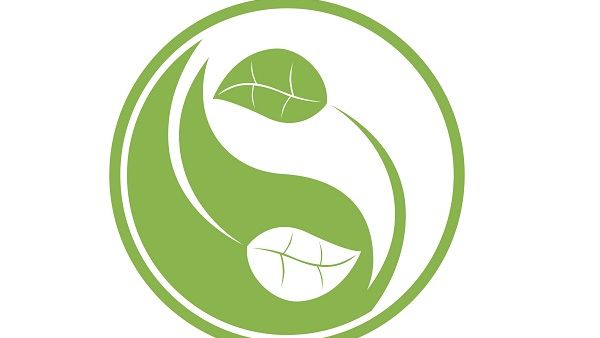WCM-Q Study Probes Plant-Derived Breast Cancer Therapies

Researchers at Weill Cornell Medicine-Qatar (WCM-Q) have published an in-depth study reviewing the effectiveness of plant-derived therapies at fighting the most aggressive forms of breast cancer.
A team of researchers led by Dr. Dietrich Büsselberg, professor of physiology and biophysics, reviewed more than 350 scientific studies to identify which plant-derived therapies have anti-cancer properties that could potentially be used to treat so-called ‘triple-negative breast cancers’ which are highly aggressive, do not respond to conventional hormone-based therapies, and which tend to spread, recur and develop drug resistance at high rates.
The researchers investigated existing research on natural compounds with anticancer potential such as luteolin (found in many herbs and vegetables), curcumin (found in turmeric), capsaicin (chili pepper extract), rutin (plentiful in apples, figs and citrus fruits), among many others.
Triple-negative breast cancers (TNBCs) are so called because they test negative for estrogen receptors, progesterone receptors and human epidermal growth factor receptor 2 (HER2) and this means they do not respond to hormonal and HER2 targeted therapies that target these receptors which are effective at treating non-TNBC tumors. TNBCs are therefore primarily treated with surgery, chemotherapy and radiation therapy, which have unpleasant side effects and are often not effective. Breast cancer is the most common form of cancer among women worldwide, and an estimated around 10-24 percent of breast cancers are TNBCs.
While a great deal of research has been conducted into the efficacy of a wide range of different plant-based therapies for treating TNBCs, there are few papers that draw these studies together to give a comprehensive overview, explained Dr. Büsselberg.
“It is proven that consumption of many different fruits and vegetables reduces the risk of cancer, but the research on plant-based therapies and naturally occurring compounds is widely scattered and consequently cumbersome and time-consuming to assimilate,” he said. “Our aim with this manuscript was to pull a wide range of the best of these studies together in one place, analyze them and draw conclusions about the efficacy of plant-based therapies. Our hope is that this will facilitate the targeting of research and ultimately the use of those plant-based therapies that the evidence suggests improve outcomes for patients with TNBCs.”
The study was done in collaboration with the research team of Dr. Büsselberg and the Institute of Population Health. Elizabeth Varghese, Dr. Samson Mathews Samuel, Mariam Abotaleb, Dr. Ravinder Mamtani, Dr. Sohaila Cheema and Dr. Büsselberg carried out an exhaustive review of 353 scientific papers on 14 different plant-based compounds found in a wide variety of plants. Natural compounds with anti-cancer properties work by modulating different cell signaling ‘pathways’ that are involved in the growth of cancer cells. For each compound, the research team analyzed which signaling pathways they affect, and found that 13 of the 14 compounds investigated had anti-cancer properties for TNBCs. These compounds were found in a long list of plants: broccoli, green chili, onions, onion leaves, radishes, carrots, celery, tomatoes, shallots, apples, kiwis, citrus, beans, cucumbers, turmeric, soybeans, red grapes, blueberries, raspberries, pepper, some legumes, tolypocladium (a fungus) and corn lily, the last of which is mildly toxic.
The team noted that one of the 14 compounds reviewed - asparagine – has a pro-carcinogenic effect in TNBCs. Aspargine is found in asparagus, potatoes, legumes and also non-plant sources including beef, fish and eggs.
The paper, entitled ‘The “Yin and Yang” of Natural Compounds in Anticancer Therapy of Triple-Negative Breast Cancers’ has been published in Cancers, a highly regarded medical research journal.
Dr. Samuel said: “With this study we were able to identify in the literature a number of plant-derived compounds that disrupt tumor growth by modulating six known cell signaling pathways involved in TNBCs. While these naturally occurring compounds have a relatively modest effect and certainly should not be considered cures in any meaningful sense, they do indeed have anti-carcinogenic properties and are therefore potential anti-cancer agents eligible for further investigation. Furthermore, the literature shows that when used in combination with chemotherapy drugs, these plant-based compounds may bring about better therapeutic outcomes, overcome resistance to drugs and sensitize cancers to anti-cancer agents they were once resistant to.”
The research was made possible by support from the Bridge Funding Grant (Nov 2017- current) awarded to Dr. Büsselberg by the Biomedical Research Program at Weill Cornell Medicine-Qatar, a program funded by Qatar Foundation. Elizabeth Varghese was supported by the Institute of Population Health.
Background Information
Weill Cornell Medical College in Qatar
Weill Cornell Medicine - Qatar is a partnership between Cornell University and Qatar Foundation. It offers a comprehensive six-year medical program leading to the Cornell University M.D. degree with teaching by Cornell and Weill Cornell faculty and by physicians at Hamad Medical Corporation (HMC), Aspetar Orthopedic and Sports Medicine Hospital, the Primary Health Care Corporation, the Feto Maternal Center, and Sidra Medicine, who hold Weill Cornell appointments. Through its biomedical research program, WCM-Q is building a sustainable research community in Qatar while advancing basic science and clinical research. Through its medical college, WCM-Q seeks to provide the finest education possible for medical students, to improve health care both now and for future generations, and to provide high quality health care to the Qatari population.






